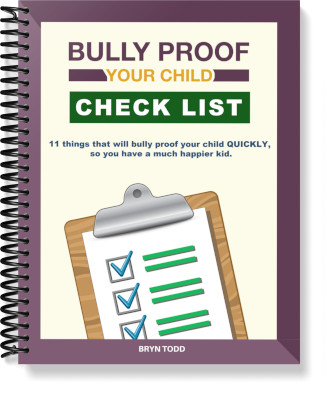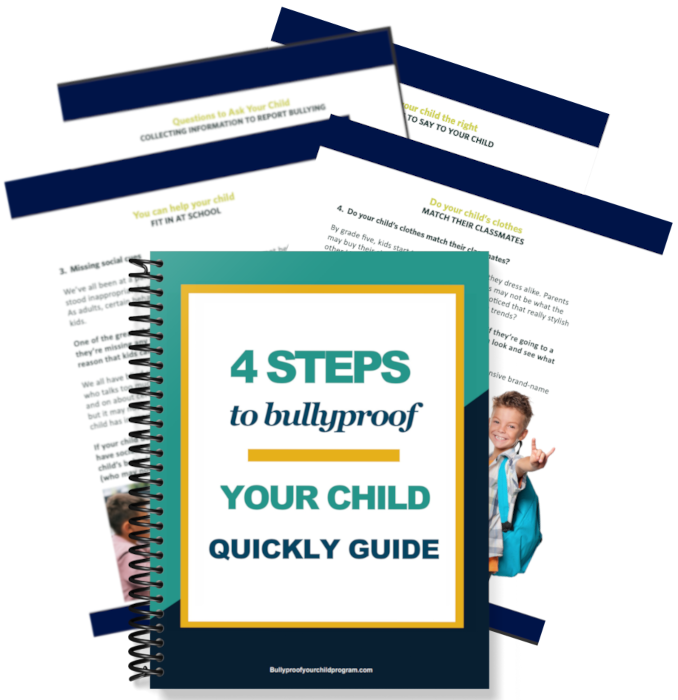
When your child sees the world through a sensitive lens, every moment can be richer, more intense, and sometimes more challenging. Imagine feeling the gentlest breeze like a storm, or a casual remark like a deep conversation.
This is the world of a sensitive child—a world where emotions and perceptions dial up to the extreme.
Navigating this path as a parent means stepping into their shoes, feeling what they feel, and understanding their unique perspective.
It’s about acknowledging that their heightened senses are not just quirks but part of who they are – deep-feeling, empathetic, and acutely aware of their surroundings.
This blog post will explore ways to help your sensitive child blossom. We’ll dive into creating a nurturing environment where they can thrive, foster open communication that validates their experiences, and build their self-esteem.
It’s about turning sensitivity into a superpower—a source of strength, empathy, and creativity.
Understanding Sensitivity in Children
Understanding your child’s sensitivity is like learning to read a delicate and unique language. If your child is highly sensitive, they experience the world in a way that’s more intense and profound.
They might feel things deeper, from the hum of a busy classroom to the emotions of those around them. This sensitivity isn’t a flaw; it’s a special lens through which they see the world.
As a parent, acknowledging and embracing this trait is crucial. Realize that their heightened senses or emotions aren’t overreactions but genuine responses to their surroundings.

They might feel anxious or shy, or struggle with self-esteem in a world that sometimes feels too loud or too bright.
Your role? Be their safe haven. Listen to them, really listen, when they share their feelings. Create a space where they can express themselves without fear of judgment. This validation is powerful—it tells them that it’s perfectly okay to feel deeply, to be who they are.
Be mindful of what overwhelms them. Maybe it’s a bustling supermarket or a noisy birthday party. Knowing their limits and adjusting their environment to reduce stress can make a big difference.
A quiet room with dimmed lights or even a gentle hug can be a comforting refuge when the world becomes too much.
Remember, your sensitive child sees the world in vibrant colors. They’re empathetic, intuitive, and often incredibly creative. Your understanding and support are key to helping them navigate their experiences with confidence and grace.
With your guidance, they can learn to harness their sensitivity as a strength, blooming beautifully in their own unique way.
Building a Safe Environment
Building a safe space for your child, one who feels the world with a tender heart is so important. It’s about giving them a corner of the world where they can be themselves without any filters, where their sensitivity is seen as a gift, not a challenge.
Here’s what you can do:
Creating a Comfort Zone
When your child is sensitive, their world can feel a bit too big and loud at times. It’s up to you to carve out a little sanctuary where they can just be, away from the whirl of it all.
You can create this comforting bubble by:
1. Setting up a cozy nook: Set up a special corner in your home where they can snuggle, read, or play. Fill it with soft pillows, their favorite blanket, or even a small tent. It’s their safe spot, a retreat from the outside world.
2. Choosing comfy clothes: Pick out clothes that feel good on their skin. Avoid anything itchy or too tight. Comfortable clothing can make a big difference in how they feel throughout the day.
3. Keeping a comfort item close: Let them have that one stuffed animal, blanket, or even a small trinket that makes them feel secure. This little object can be a big source of comfort when they’re feeling overwhelmed.
4. Steering clear of sensory overload: Be mindful of what overwhelms them. It might be loud places, crowded rooms, or too many activities in one day. Recognizing and avoiding these triggers can keep their world a little more serene.
Remember, these simple acts aren’t just about comfort; they’re about showing your child that their feelings matter. In this haven you create, they can find peace and reassurance, knowing that there’s always a place where they can feel calm and protected.
Encouraging Open Communication
It’s so important to open the lines of communication with your sensitive child. It’s about letting them know that their voice is valued and their feelings are real.

Here’s how you can foster that openness:
1. Give them your full attention: When they speak, listen with your whole heart. Show them with your eyes and your quiet that what they’re saying is the most important thing in the moment.
2. Never belittle their feelings: Avoid saying things like, “You’re just being too sensitive.” If they’re hurt or upset, it’s real to them. Assure them it’s okay to feel strongly and that you take their concerns seriously.
3. Ask questions that let them open up: Instead of yes or no questions, ask them things like “What made you happy today?” or “What’s something you’re wondering about?” This shows you care about their inner world.
4. Praise their efforts to communicate: When they do open up, show them love and appreciation. Say things like, “I’m really glad you told me about this.” This positive reinforcement makes them feel valued and more likely to come to you in the future.
Creating this environment of trust and respect is like planting a garden of self-worth in your child. With every open conversation, you’re watering it, encouraging it to grow stronger and more vibrant. This is how you help your sensitive child bloom into a confident individual.
Promoting Self-Esteem
When your child is sensitive, their self-esteem is like a little seed that needs nurturing. Boosting their confidence is key.
Here’s what you can do:
Celebrating Accomplishments
You know, when your child does something amazing, or even when they just manage something small they’ve been struggling with, it’s like they’ve reached the top of their own little mountain. And you, you’re there not just to see it but to celebrate it with them.
So, give them that high-five, that hug that says, “I’m so proud of you.” Maybe scribble their victory on a sticky note and slap it on the fridge, or have a little victory dance right there in the living room.
Each time you do this, you’re telling them, “Hey, I see you. I see your hard work, and it’s awesome.”
This isn’t about making a fuss over nothing; it’s about recognizing their courage to try, to succeed, and sometimes even to fail and then try again. It’s about making them feel seen and reminding them that they matter.
Because every time you celebrate those victories, you’re not just boosting their day; you’re boosting their belief in themselves. And that’s something they’ll carry with them, long after the moment has passed.
Fostering Independence
There’s something truly special about watching your child do something all by themselves, isn’t there? Encouraging your little one to stand on their own two feet can do wonders for their confidence.
Think about it: when they pour their own cereal or zip up their jacket without your help, their chest puffs up with a little more pride. Give them little jobs around the house, like helping to set the table or tidying up their toys.
It’s not about getting chores done; it’s about showing them you trust them to handle these things, and that you believe they can. And that belief? It’s like a secret message that tells them they’re capable and reliable.
Now, they might not get it right every time. There might be spills or a bed that’s not quite made hotel-style, but that’s okay. It’s all part of the journey. Be there with a patient smile, guiding them rather than taking over. Let them figure it out, because when they do, the triumph is all theirs.
So, you’re not just teaching them to be independent; you’re giving them the gift of believing in themselves. And as they grow, these little seeds of independence you’re planting now will blossom into a beautiful, self-assured strength that will carry them through life.
Helping Them Face Challenges
Seeing your child feel defeated when a challenge comes their way can be tough. You might feel that urge to swoop in and smooth out the road for them, but deep down, you know that they need to learn to face these bumps themselves.
Here are some strategies you can use to help your child face challenges with confidence:
Teaching Resilience
You see, resilience isn’t just about getting through the tough stuff; it’s about growing from it, too.
You know, deep down, that what they really need to grow is not a world without struggle, but the strength to rise above it. Teaching them resilience, that’s the key.
Here’s what you can do to plant the seeds of resilience in their young, fertile minds:
1. Encourage problem-solving: When they come to you with a furrowed brow, puzzled by a problem, resist the urge to give them the answers. Instead, ask them, “What do you think you could do about this?” Nudge them to brainstorm, to imagine different outcomes. It’s like you’re saying, “I believe in your ability to figure this out,” and that belief can be a powerful motivator.
2. Celebrate mistakes: If your child comes home disheartened by a slip-up, pull them close and share a little secret: “Do you know that every ‘oops’ moment is just another way to learn something new?” Teach them to wear their scrapes like badges of honor, showing that they tried, they dared. Together, you can discover the silver linings of these stumbles, turning “I can’t” into “I’ll try again.”
3. Talk about emotions: Encourage them to share what’s in their heart. When they’re upset, ask, “How does this make you feel?” and really listen. This teaches them that their feelings are valid and important, and helps them understand and manage their emotions better.
Encouraging Positive Thinking
It’s like a gentle push on a swing when you help your child see the sunny side of life. Instilling positive thinking can be a game-changer for their confidence.

Here’s how you can be their cheerleader:
1. Focus on strengths: Just like a gardener spots the first signs of a blooming flower, help your child see their own blossoming talents. Say, “You’re really good at sharing your toys,” or “I love how you ask such interesting questions.” It’s about shining a light on what they do well and nurturing their self-esteem to full bloom.
2. Use positive affirmations: Introduce them to simple but powerful phrases. When they face something tough, they can whisper to themselves, “I am strong,” or “I can handle this.” It’s like giving them a set of magic words to boost their courage and confidence.
3. Practice gratitude: At the end of each day, make it a habit to ask, “What made you happy today?” It could be as simple as a sunny sky or a shared laugh with a friend. This isn’t just about feeling good at the moment; it’s about building a treasure chest of happy memories they can dip into when days are gray.
Remember, fostering resilience and a positive mindset in your child is a journey. It’s about walking beside them, holding their hand when needed, and watching them bloom into confident, capable individuals.
Your love and belief in them are the gentle sunlight under which they’ll thrive.




